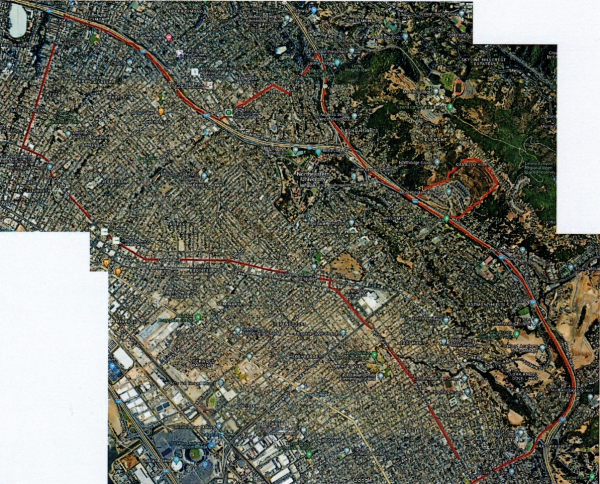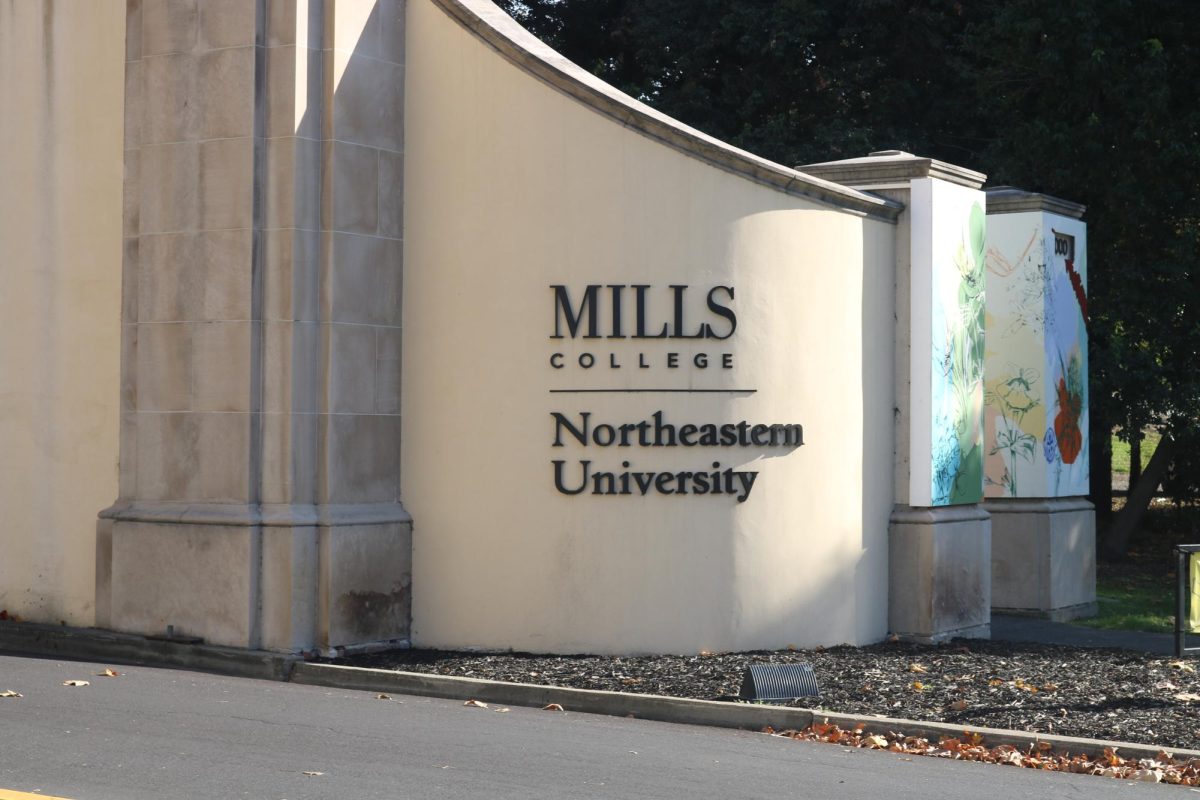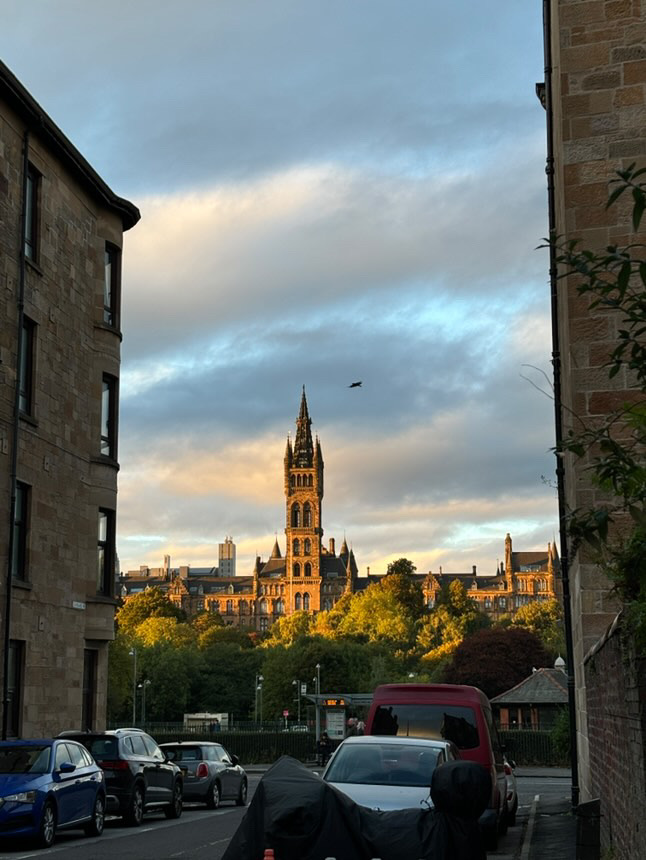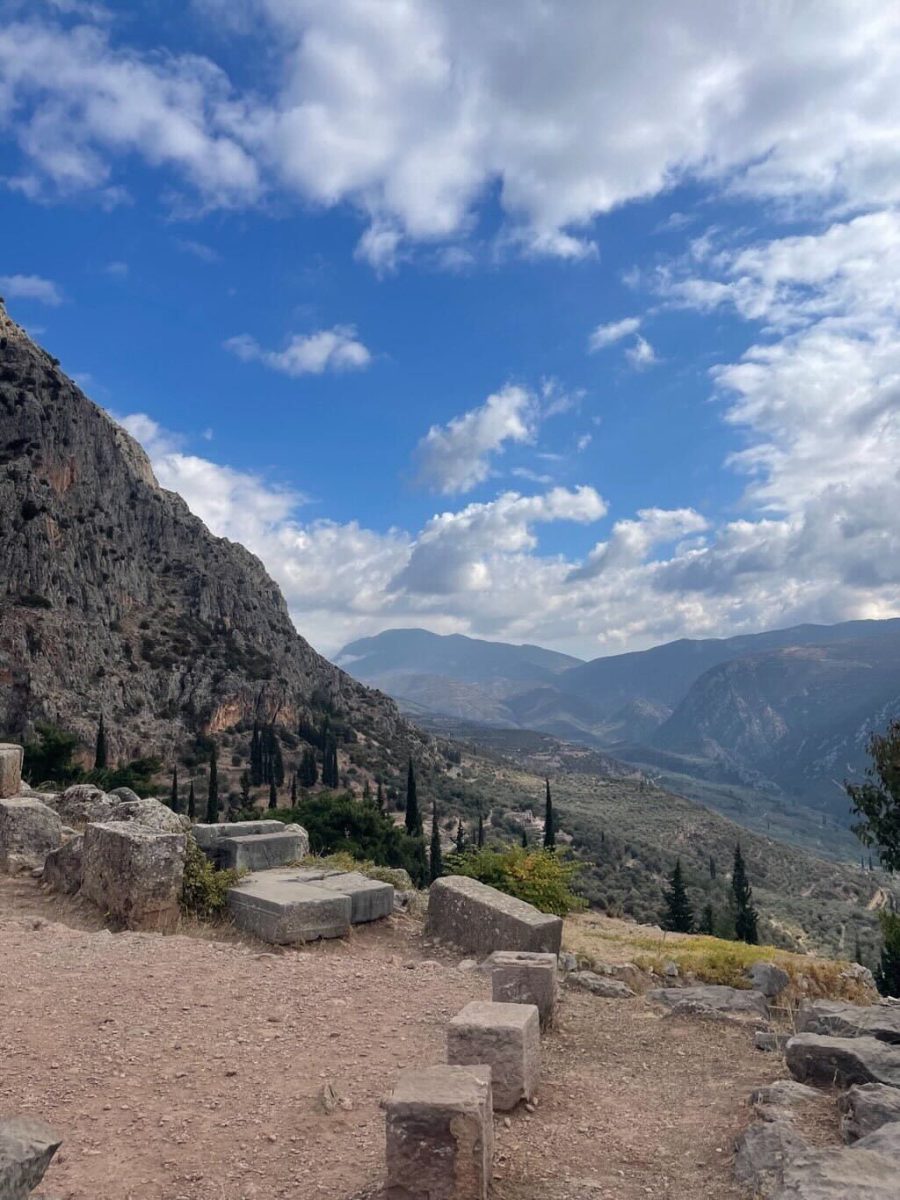Northeastern’s flagship Boston campus has had its own private campus police for more than half a century, which has grown in size and jurisdiction along with the rapidly expanding university. Now, as the university establishes satellite campuses across the globe, efforts to establish a private university police force have reached Northeastern Oakland.
Several Oakland residents and Northeastern Oakland’s regional security director have recently renewed an effort initially introduced in August 2024 to create a private police force to preside over the California-based campus.
According to a Feb. 8 letter to residents of East Oakland from Clay Burch — a former Oakland Police Department captain and current regional security director of Northeastern Oakland who was hired in 2023 — “Forming a sworn police department to ensure safety on and around the Oakland campus has been a goal of the University.” Burch added that “NU leadership identified me as a candidate to build it.”
Burch did not respond to requests for comment from The Huntington News.
On Aug. 1, 2024, Northeastern Oakland submitted a draft memorandum of understanding, or MOU, to the City of Oakland, serving as a non-binding declaration of its intent to take action to propose the creation of a private police force for the university’s Oakland campus. The city’s Attorney’s Office rejected the MOU at the end of January due to legal concerns regarding its implementation, Burch wrote in his letter. Despite this, Burch wrote that “the University and I continue to stand by our vision” to create a university-based police department.
Michael Ford, who works as a manager in Oakland’s Department of Transportation, told The Oaklandside a new police force would cost about $20 million per year and be fully funded by Northeastern.
If approved by the City Council, Northeastern would become the third private university in California authorized to have its own police department, alongside the University of the Pacific and University of Southern California. While the two other universities’ police departments fall under the authority of the chief police of the city, Burch is proposing a police department that would operate independently of the Oakland Police Department, or OPD. On the university’s Boston campus, the Northeastern University Police Department functions similarly, with its own ranks and full law enforcement authority on university property and independence from the Boston Police Department.
The proposed force, which was first reported by The Oaklandside Feb. 10, would have jurisdiction not only over not just Northeastern’s 135-acre campus, but across much of the East Oakland area as well, including areas in districts four, five, six and seven. Before Northeastern acquired Mills College in June 2022, the college existed for 170 years without its own police presence. Currently, the campus’ safety measures include gates as well as security guards.
According to the MOU, the force would consist of “NU Peace Officers” who would have the same capabilities as the OPD officers, including the authority to enforce traffic and parking restrictions, bear arms and access to several software and information resources.
In a statement to The News, Northeastern’s Vice President for Communications Renata Nyul said The Oaklandside’s reporting “does not represent the facts.”
“The safety and wellbeing of our campus community is Northeastern’s foremost priority,” Nyul said. “While there have been productive conversations with the City of Oakland about a new partnership, including expanding our public safety resources on the Oakland campus, the information shared in the Oaklandside article does not represent the facts. Although much of the information was attributed to a Northeastern employee, none of it has been fact-checked with university leaders.”
The proposed MOU raises unique legal considerations. Unlike the MOUs for the University of Southern California and University of the Pacific — the other two institutions that operate private police forces in the state — Northeastern’s proposed MOU states that the university’s police officers would be established under the city administrator’s authority as opposed to under the OPD, The Oaklandside reported. Also unlike the other institutions with police forces, the MOU says the City of Oakland would be liable for legal claims that may arise in Northeastern Oakland officers’ line of duty, including any reckless or willful misconduct, negligence and bodily injury or wrongful death to civilians.
Oakland City Attorney Ryan Richardson said in a statement to The Oaklandside that “California law simply does not provide a mechanism for a private university in Oakland to establish its own police department, with full-fledged California peace officers, that is not a city department and that is outside of the Oakland Police Chief’s command.”

In the Feb. 8 letter, Burch wrote that the neighborhood “needs a procedurally just, constitutional police force that not only enforces the law … but also incorporates robust community outreach, partnerships with businesses and other groups, an ambassador program, and embracing cutting edge technologies to target criminal activity while being careful to protect civil and privacy rights.”
Later in the letter, Burch wrote that “Northeastern is well positioned to offer a robust solution to East Oakland’s public safety needs.”
Concerns about Oakland’s safety are not new. In 2022, Oakland had a crime rate of 7,996 per 100,000 people, which is approximately three times the national rate. To many students on the Oakland campus, leaving the immediate area is laden with risks.
“While I was on campus, I definitely felt a sense of safety,” said Hannah Burke, a second-year business administration and psychology combined major who spent her second semester on the Oakland campus. “I felt like I could walk around campus at night with no problems, and there was a lot of security at the front gate. But when it came to leaving campus, I think that’s where the issues arose.”
Burke is not alone. Gabriella Mehraban, a second-year business administration major, spent her first year at Northeastern on the Oakland campus. Although she felt safe while on campus, she said she wouldn’t leave the premises alone “under any circumstances.”
“Directly off campus was unsafe,” she said. “I had the Citizen app which tells you when crime happens in the immediate area and after a week I had to delete it because I was getting a notification every five minutes that there was a shooting or a stabbing and it would be like 0.1 miles away.”
Several students who spoke to The News said the creation of a police force specifically for the campus would not address their safety concerns..
“The idea of having armed guards would both, I think, heighten tensions between locals and the school … and also even make students feel unsafe,” said Ava Angelucci, a second-year political science and international affairs combined major who spent the spring 2024 semester in Oakland. “I don’t think students always associate armed policemen as necessarily being a good thing.”
East Oakland Neighbors, or EON, is a community organization designed to connect East Oakland residents and promote discourse about issues that affect the neighborhood. Most recently, they have focused their efforts on Northeastern’s proposal. EON is hosting a special election April 15 to get resident feedback on Northeastern’s proposal.
“We see [Northeastern’s] proposal as version one of what an actual plan, approved by the community, will turn out to be. Maybe that’s version two, three or 10, but people want to be involved in the discussion with [Northeastern], which is a good thing,” EON wrote in a statement to The News. “We have not heard from Northeastern and know East Oakland community members are waiting, interested and expecting to hear something from them on this topic so the collaborative sharing of ideas can begin. We can help connect everyone who wants to take part in these conversations.”













